PDA Summer Reading 2021

PDA wants to help you create that summer reading list. If you need to update your skills, there are plenty of PDA-owned and co-published books from which to choose. Below you will find the latest releases from PDA. All the publications mentioned are available for purchase at the PDA Bookstore.
Looking for something lighter, you can pick from the novels appearing on the reading lists of PDA staff and volunteers.
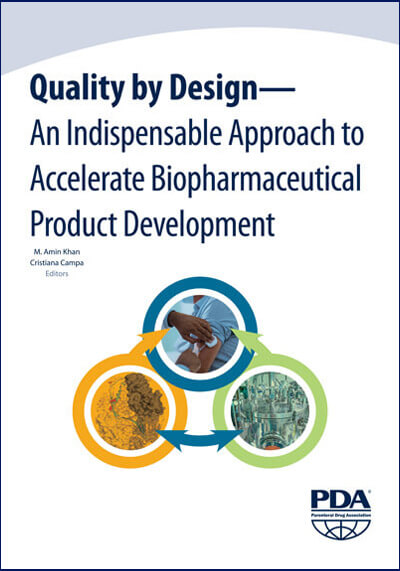
Quality by Design — An Indispensable Approach to Accelerate Biopharmaceutical Product Development, edited by industry experts Cristiana Campa, Vaccines Technical R&D, GSK, and M. Amin Khan, Vaccines R&D, GSK, is an important contribution to the ongoing dialogue for accelerating CMC product development bridging strategies for biotherapeutics and vaccines.
It illustrates how Quality by Design (QbD) can be a powerful enabler of acceleration, fostering deeper understanding of what is critical, what level of CMC risk is acceptable, and hence what elements of product development can be streamlined.
More than 60 authors have contributed to this influential text emphasizing the importance of QbD to product development and commercialization. Several case studies covering biotherapeutics and vaccines are shared by several major companies and well-recognized academic institutions.
PDA Staff and Volunteers Light Reading
Richard Johnson
A River Runs Through It and Other Stories, Norman MacLean
Javier Camposano
Never Split the Difference, Chris Boss
Quantum Man, Lawrence M. Krauss
Susan Schniepp (joined a book club with her two daughters)
Killers of the Flower Moon, David Grann
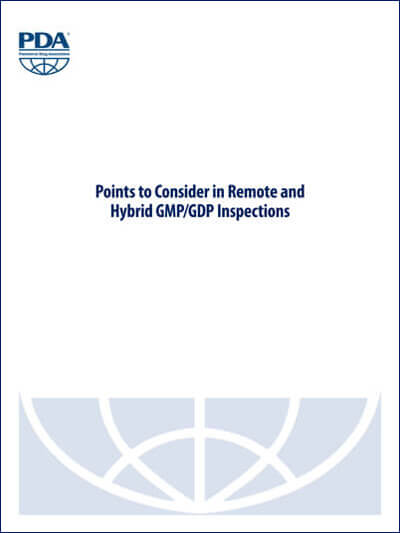
Remote assessments increasingly are seen as useful tools in obtaining meaningful insights into a site’s operations. But what factors should companies and health authorities consider when adjusting to a remote inspection format? How do you determine, address, and plan for the technological hurdles and considerations in remote inspections?
PDA Points to Consider in Remote and Hybrid GMP/GDP Inspections examines advantages and best practices for planning and implementing all types of remote regulatory inspections, including desktop, virtual, and hybrid inspections. It describes best practices that will help all participants engage efficiently and avoid unnecessary or unexpected delays, stressors, or complications in the remote inspection process. The suggestions in this document may be useful to sites that are the target of inspections and to health authorities.
PDA Staff and Volunteers Light Reading
Michael Blackton
Bad Blood: Secrets and Lies in a Silicon Valley Startup, John Carreyrou, Will Damron, et al.
Command and Control, Eric Schlosser
Trevor Swan
The Time of Contempt, Andrzej Sapkowski
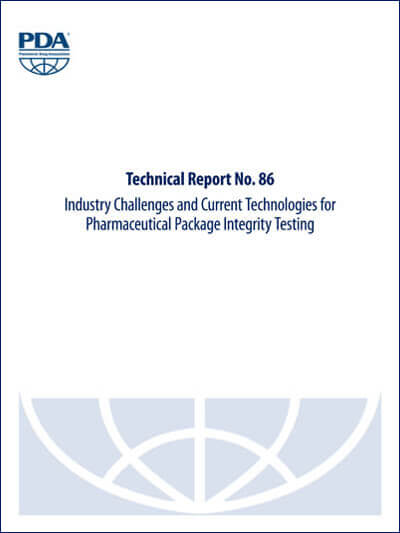
Technical Report No. 86: Industry Challenges and Current Technologies for Pharmaceutical Package Integrity Testing is a consensus-based resource surrounding the challenges encountered in using complex package systems and introduces important elements to consider in decision-making. It also offers an examination of the technologies available for package integrity testing not yet established by peer-reviewed research. This technical report focuses on the challenges facing the pharmaceutical industry that use complex packaging systems for sterile drugs and biologics (e.g., syringes, syringe assemblies, bulk containers). It also presents information on some innovative methods for package integrity testing using existing technologies, including the potential impact of cryogenic conditions. The intent is to update information and incorporate experiential learning which is not addressed in PDA Technical Report 27 and USP<1207>. It also serves as a technical resource, focusing particularly on sterile products and encouraging a risk-based approach and leveraging testing to better understand, analyze, and eliminate the risks during developmental phases. Use of the appropriate testing during each manufacturing phase can help in evaluating and mitigating residual risks.
PDA Staff and Volunteers Light Reading
Bettine Boltres
Bad Blood: Secrets and Lies in a Silicon Valley Startup, John Carreyrou, Will Damron, et al.
Black Out, Marc Elsberg
Mathias Romacker
Last Best Hope — America in Crisis and Renewal, George Pecker
Marilyn Foster
The Ghost Army of World War II: How One Top-Secret Unit Deceived the Enemy with Inflatable Tanks, Sound Effects, and Other Audacious Fakery, Rick Beyer and Elizabeth Sayles
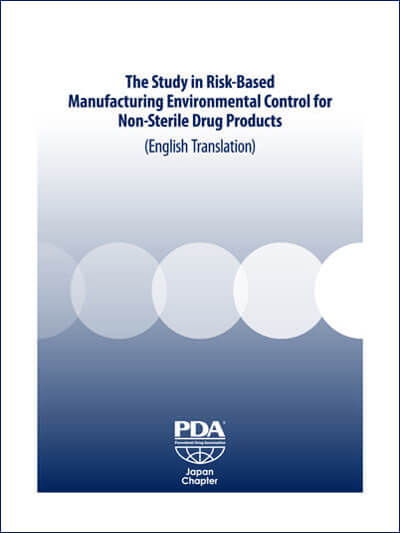
The Study in Risk-Based Manufacturing Environmental Control for Non-Sterile Drug Products (English Translation): There are very few documents available that provide guidance regarding to requirements for non-sterile drug manufacturing. The Kansai Study Group (KSG) of the PDA Japan Chapter (JPDA) published this paper to offer some consensus-based ideas to help pharmaceutical manufacturers establish appropriate, risk-based manufacturing and environmental control systems for quality products.
The KSG conducted a survey of JPDA member companies regarding their current practices in an effort to develop best practices around what environmental controls and maintenance are required for manufacturing non-sterile drug products.
PDA Staff and Volunteers Light Reading
Melissa Seymour
Mere Christianity, C.S. Lewis
Winning the War in Your Mind, Craig Groeschel
Emma Ramnarine
Ten Lessons for a Post-Pandemic World, Fareed Zakaria and The Loop Approach — How to Transform Your Organization from the Inside Out, Sebastian Klein and Ben Hughes
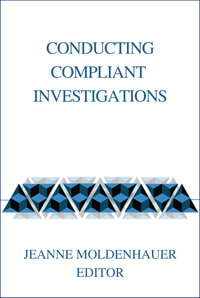
Conducting Compliant Investigations includes many different approaches to conducting compliant investigations, where compliant is defined as meeting the requirements of the applicable regulatory documents. The information it provides on conducting investigations that will be acceptable to regulatory investigators will be instrumental in helping you to significantly reduce regulatory risk.


